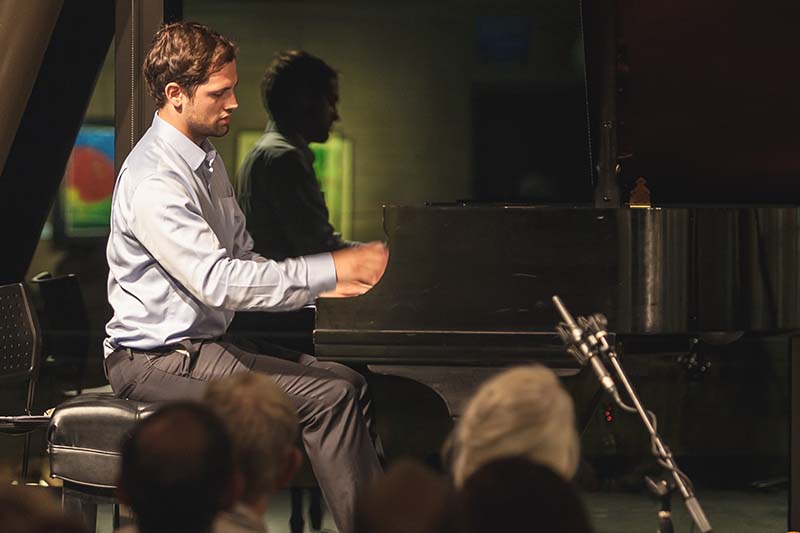I have always considered Kapustin an avant-garde composer for his perfect blend of classical form and textured jazz. It was only a few months ago that I considered the idea of studying one of his piano concerti.
I was sure that I would not be disappointed and, in fact, at my first listening, my expectations were totally met: piano concerto n. 2 was a synthesis of pure energy with the most optimistic enthusiasm. As is normal, the first “hearing” is often an apparition that really only takes shape with the study of the score for the piano (which, by the way, was not easy to find).
Nicolai Kapustin, a Russian born in 1937, is a composer still not very well known, but pianists who know his work agree that they have the feeling that they have known him forever.
Not by chance when you are dealing with Kapustin is like playing or listening to Mozart and Gershwin together. And, of course, a piece of music that I would define as fashionable since it is not less infectious than an iphone 6 and, though the score is rather costly, it’s always less than a applephone.
When you see what is born of enthusiasm, you tend to fall in love with it.
The first movement takes flight beginning with the first seven major chords that have the energetic pulse of a wave that cannot stop and that crashes with its golden magic into everything that it encounters in its journey. Rhythmically, it is less flexible than something like a Rhapsody in Blue but energetically I would value it at greater “wattage.” The perfect cohesion and creativity create the strongest magnetic field that leads the listener from first to last note.
The second movement mediates between two extremes: a young, naïve singing voice grows into a chorus of inexplicable energy like a group of teenagers about to embark on an adventurous road trip.
The last movement is a stimulating dialogue of young adults who face maturity with fomenting irony from restless moods to positive and negative poles.
The entire concerto is symbolic of the vital essence contained in a ball of energy, the type of energy that is the also foundation of cooperation among individuals and that leads to a higher psycho-physical plane illuminating the dead zone of consciousness.
Kapustin’s piano concerto n. 2 is timeless. By stimulating the mind, it creates a world of limitless imagination and inspiration. Pure energy.


